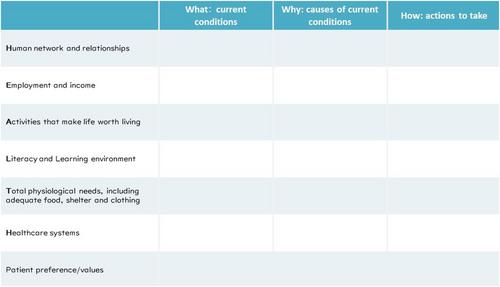Although nurses are expected to address the social determinants of health (SDH) in clinical settings, the perspectives of front-line nurses on the integration of SDH into their clinical practice remain unclear. Understanding the dynamism of this integration and its outcomes can yield crucial insights into effective nursing care. This study aims to elucidate the integration and adoption of tool-based SDH assessment nursing programs and their impacts on daily nursing care.
We conducted qualitative research at a small community-based hospital in Japan, where a tool-based program characterized by social background interviews and documentation was implemented. Nurses at the hospital were recruited via purposive and snowball sampling. After hypothesis generation, semi-constructed in-depth online interviews were conducted. Each interview lasted between 30 and 50 min. The data were analyzed via thematic analysis using the framework approach.
A total of 16 nurses participated. Participants' incorporation of the novel SDH assessment program was bolstered by prior learning and their recognition of its practical value. Institutional support and collaborative teamwork further facilitated the adoption of this innovation. Enhanced knowledge about the social contexts of their patients contributed to increased respect, empathy, and self-affirmation among participants, consequently enhancing the quality of nursing care.
Through team-based learning, reflection, and support, nurses can integrate a tool-based SDH assessment program into their daily nursing practice. This program has the potential to empower nurses to deliver more holistic care and redefine their professional identity. Further research is warranted to assess patient-reported outcomes.



